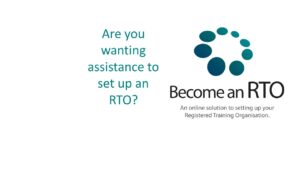Once you have set up your RTO, you now need to consider the running and maintaining of your successful business. Even though you have passed your audit being successful, is an entirely different story.
The key to your success is a number of factors, and meeting compliance is just one of them. A successful business has many different components working together that result in a lucrative business model.
Marketing.
If you build it, you’ve done the research, now you need to get them to come. Build Your Online Presence, and learn how your target market likes to interact. Social media might be a great way to promote your business such as Facebook, Twitter, and Instagram . The presence of a marketing strategy is one key sign of whether or not your RTO business will make it. Your marketing spans everything from discussions with industry, finding customers, and then upselling them on new services later.
Customer service.
With new RTO businesses popping up everywhere you’ll find price and product aren’t enough to differentiate you from the competition. This is why your research, and contact with industry is key. Analyse your product from the perspective of the target customer and what he or she needs and wants, not what you like. Then it’s about your customer service – how you treat your customer. Your team are key here and need to know the best practices to delight your customers.
Figure out your core values.
Write these down. They are the set of principles your RTO is organised around, and they should never be for sale. They are the essence of your business and what it stands for. They help you and your team make decisions on a daily basis.
Your team and Performance appraisals in RTOs
Your team need to be strong and empowered to deliver your passion. A study conducted by the American Society for Human Resources discovered the majority of performance appraisals have a zero impact on performance. One reason for this is that appraisals are often laborious. When both employees and managers dread them, they can’t ever be effective.
A once a year appraisal is not a great way to connect with your staff.
Humans are aspirational goal seeking beings. The scientific research includes areas of mindset, expectancy, self-determination, self-esteem and self-efficacy just to name a few. Sadly, performance reviews are very formal and structured. Meaning there is little room for an open dialogue, where you can provide these needs. This rigid structure creates an uncomfortable environment for employees, and often closes down their need to connect. Too much formality can cause employees to be less open to engagement. Therefore, performance evaluations are an imperfect tool that only capture snippets of information.
The Gallup State of the Global Workplace Report revealed that only 13% of people reported feeling engaged in their work while a staggering 63% were disengaged.
What can you do to help boost engagement levels at your work?
There is no easy answer, but here are several questions to consider:
- Is your work something you enjoy overall and that you think is valuable to your organisation or others?
- Do you find your work stimulating with any challenge being something to look forward to finding a solution to?
- Are you encouraged to think outside the box and innovate? Does your boss or manager invite discussion of new ideas?
- Do you receive encouragement from your boss or your manager for the work that you do? Do they nurture your professional development?
- Are they interested in you as a person and know your goals and career aspirations?
By having regular catch up meetings with your team, you have the time and space to ask these questions. Where Performance appraisals rarely focus on developing an employee’s skills and abilities, your regular catch-ups can.
Clear KPI’s
Regular tracking of results is key. This tracking is not just about the performance of your staff, it’s about your budget, the completion rates of students, the social clicks, the spend on marketing, the conversions. The list goes on.
Research your competition.
Don’t ignore your competition. You need to know who is knowing your direct and indirect competition. Direct being other RTOs, and indirect competitors are other non-accredited courses, mentors, coaches or other ways to give skills to your clients. Do as much research as you can about your competition. Don’t copy them, but don’t be afraid to learn from them either.
Study trends.
Do your homework so you can identify new RTO services, or even products that suit your industry or trends. You need to be on top of your game, not selling something that already has waning popularity. Some trends involve how people communicate, and online learning.

